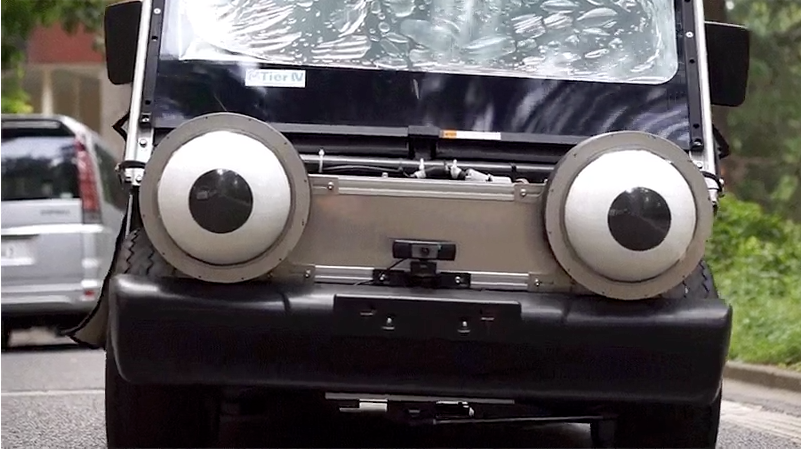Parkour athletes are turning off store lights in Paris

After taking a few steps back to get a running start, Hadj Benhalima dashed toward the building, pushed against its wall with his foot, propelled himself upward and stretched out his arm. At the peak of his leap, he flipped off a light switch, more than 10 feet off the ground. A click sound rang out, and the bright lights of a nearby barbershop went off instantly. “Oooh,” his friends cheered, as Mr. Benhalima, a thin 21-year-old dressed all in black, landed back on the sidewalk. It was the second store sign he had turned off on a recent nighttime tour across Paris’s upscale neighborhoods. Over the past two years, groups of young athletes practicing Parkour — a sport that consists of urban running, climbing and jumping — have been swinging around big French cities switching off wasteful shop signs.
Study raises alarm about impacts of Long Covid
A new long-covid study based on the experiences of nearly 100,000 participants provides powerful evidence that many people do not fully recover months after being infected with the coronavirus. The Scottish study found that between six and 18 months after infection, 1 in 20 people had not recovered and 42 percent reported partial recovery. There were some reassuring aspects to the results: People with asymptomatic infections are unlikely to suffer long-term effects, and vaccination appears to offer some protection from long covid. “It’s one more well-conducted, population-level study showing that we should be extremely concerned about the current numbers of acute infections,” said David Putrino, of the Mount Sinai Health System in New York. “We are in trouble.”

The true curse of the legendary blue diamond
In June 2006, King Bhumibol Adulyadej marked 60 years on the throne of Thailand, amid an impressive show of respect from other royal families around the world. Thirteen reigning monarchs attended the celebrations in person, but one royal family did not: Saudi Arabia’s House of Saud. This was a deliberate snub. The Saudis were still seething about the effrontery of the Thai authorities for allegedly failing to find a stolen multi-million-dollar hoard of opulent gems and jewellery, tying to dupe them with fake gems instead. At the heart of the story is an ultra-rare 50-carat blue diamond that the Saudis say was stolen from a palace in Riyadh by a Thai janitor, later stolen again by Thai police, and which has never been returned. For many years it has been rumoured that Queen Sirikit took it for herself.

When does a book become a bestseller?
In 1983, William Blatty—author of The Exorcist—sued the New York Times. His lawsuit alleged that the Times had incorrectly excluded his latest novel, Legion, from its bestseller list. According to Blatty’s lawyers, Legion had sold enough copies to warrant a spot on the list, so its absence was due to negligence or fraud. The Times countered with what might sound like a surprising admission: the bestseller list is not mathematically objective; it is editorial content, which is protected by the First Amendment. The court ruled in favor of the New York Times. The Blatty case draws attention to a fundamental truth about bestseller lists, one that often gets forgotten amid the drama of their weekly publication: they are not a neutral window into what the public is really reading. Rather, they reflect editorial decisions about how and what to count.

How to make autonomous cars safer? How about animated googly eyes
The act of making eye contact with the driver of an approaching vehicle and ensuring the car is slowing to a stop when you’re trying to cross the road is nearly a subconscious act. But with autonomous cars, which rely on cameras and sensors hidden all over the vehicle, there’s no obvious indication as to which obstacles have been detected and will be treated as a hazard requiring a stop. No matter how many cameras or sensors they use, autonomous cars will never be perfect, but research coming out of Japan suggests that a simple upgrade could help reduce the risk of self-driving cars hitting undetected pedestrians: a pair of animated googly eyes that make it obvious what the vehicle has or hasn’t spotted. In a recent paper, researchers describe an experiment where a golf cart with a human but non-visible driver was upgraded with an over-sized pair of manually-controlled animated eyes on the front that could be made to look around.

The dark history of the smallest island nation
Lying between Australia and Hawaii, the island of Nauru is as far from Europe as any place on earth. It wasn’t until November 8, 1798, when a British ship called the Snow Hunter was passing en route to the China Seas, did any European record seeing the island. At the time, life on the small island was mostly peaceful and predictable. Tensions among Nauru’s 12 clans did run deep, but for thousands of years, Nauruans had managed to live largely in balance with nature, isolated but self-sufficient. Then one day in 1899, the geologist Albert Ellis inspected a rock-like object that was propping open a door in the Sydney office of the Pacific Islands Company, which he was told was a piece of petrified wood from Nauru. But Ellis would soon discover it was actually high-grade phosphate ore, a super-fertilizer worth a potential fortune. And Nauru's future changed forever.

A stunning sunset on a mountain in Iceland
An incredible sunset on the top of Mount Hekla in Iceland captured by photographer Hörður Kristleifsson.pic.twitter.com/KeS8QGTVMg
— Wonder of Science (@wonderofscience) October 13, 2022



